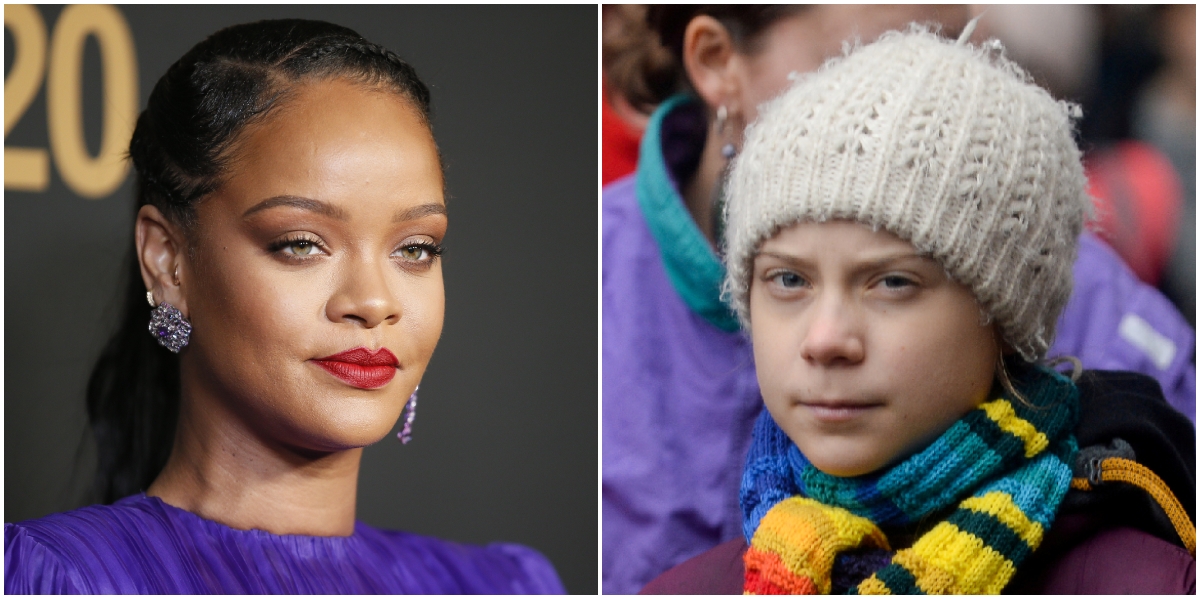From Bollywood to cricket stars, everyone started tweeting in one voice: India against Propaganda.
By Shahid Majeed Mir
The pop singer Rihanna provoked the ire of the Indian government after wading into the debate over the protests by farmers in the country, just as heavy police security and “war-like” barricades continued to be built up at the demonstration sites around Delhi.

Rihanna’s tweet, bringing global attention to ongoing farmers’ protests in India, has been followed up by similar copycat expressions of concerns by various other global celebrities. India’s Ministry of External Affairs has urged these global celebrities to educate themselves better about the ongoing protests. They’re all missing the woods for the trees.
Tens of thousands of farmers have hunkered down on New Delhi’s fringes to protest the new agricultural laws that they say will leave them poorer and at the mercy of big corporations.
Rihanna’s tweet was less about farmers and more about internet shutdown in the area around Delhi’s borders where the protesting farmers decided to stay put. “India cuts internet around New Delhi as protesting farmers clash with police,” read a CNN headline, posted by Rihanna with the comment, “Why aren’t we talking about this? #FarmersProtest”.
Now, senior government ministers, celebrities and even the foreign ministry is urging people to come together and denounce outsiders who try to break the country. “It is unfortunate to see vested interest groups trying to enforce their agenda on these protests, and derail them,” India’s foreign ministry said in a rare statement, criticising “foreign individuals” posting on social media. It did not name Rihanna and others who followed suit.
Tens of thousands of farmers have hunkered down on the Indian capital’s fringes to protest new agricultural laws they say will leave them poorer and at the mercy of big corporations. The protests are posing a major challenge to Modi who has billed the laws as necessary to modernise Indian farming.
Farmers from Punjab, Haryana and western Uttar Pradesh have been camping on Delhi’s borders for over two months, demanding the repeal of Centre’s three new farm laws. On Republic Day, a group of protesters deviated from the route of the farmers’ Tractor Parade and attacked Delhi Police personnel in ITO before storming the Red Fort.
After Rihanna and Greta Thunberg, porn star Mia Khalifa tweeted in support of the ongoing farmers’ agitation in India. In her post, Mia shared a picture from the protests and expressed severe shock over the sequence of events in Delhi. “What in the human rights violations is going on?! They cut the internet around New Delhi?! #FarmersProtest,” Mia Khalifa said in the caption of her post. She also shared a picture from the protests wherein a man was seen holding a placard that said, “Stop killing farmers.”
Greta Thunberg had tweeted a toolkit on farmers’ protest which she later deleted, saying it was outdated and shared an updated post. Greta reiterated that she supported the farmers’ protests amid reports that the Delhi Police had filed a first information report against her. However, the police later clarified that they have not named Thunberg and the FIR only mentions the creators of a toolkit in connection with the farmers protest. “No amount of hate, threats or violations of human rights will ever change that,” she tweeted.
The foreign ministry also warned about the dangers of the use of hashtags. The ministry said that the comments were “neither accurate nor responsible”, claiming that the protests were by “a very small section of farmers” in parts of India.
Shortly afterwards, Indian actors, celebrities and sportspersons, many of whom have long been silent on the farmer protests, began tweeting in one voice. Among them were cricketing stars Sachin Tendulkar, Anil Kumble and Ravi Shastri. They used hashtags #IndiaAgainstPropaganda and #IndiaTogether – both coined by the foreign ministry – and some wrote identical messages in support of the laws.
The Indian government also met Twitter officials over its move to restore accounts which used a certain hashtag linked to the farmers’ protest. The government had directed the microblogging platform to withhold around 250 such accounts.
The central government’s approach towards the farmers’ protest has been an adversarial and a confrontationist one from the very beginning, a group of former civil servants have said. The letter signed by 75 former civil servants, including Najeeb Jung, Julio Riberio and Aruna Roy, who are part of the Constitutional Conduct Group (CCG) also said that the apolitical farmers are being treated like “an irresponsible opposition to be derided, demonised and defeated”. The repeated, albeit unsuccessful, attempts to polarise the agitation along regional, communal and other lines are also reprehensible, they said.
“Such an approach can never lead to a solution,” the letter stated. If the protesting farmer union leaders were to sit down at the negotiating table, the government can possibly get them to agree to drop the demand on repealing all the three laws. Their problem is essentially about the FPTC Act and its provisions that they see as weakening the APMC mandis.
There is also disquiet on the dispute resolution mechanism for transactions outside the mandis. The act proposes these be referred to offices of the sub-divisional magistrate and district collector. “They aren’t independent courts and cannot deliver us justice, leave alone guarantee timely payment,” the farmer allege.
On the whole, though, the government, wary of voter backlash, has treated the farmers relatively gently. Violent protesters injured hundreds of police on Republic Day but the reaction of cops was muted. The government needs to open the doors of negotiation with the farmers. After all, democracy is all about taking everyone along as the country ushers in a new era of development and prosperity.
The writer can be reached at [email protected]

Leave a Reply